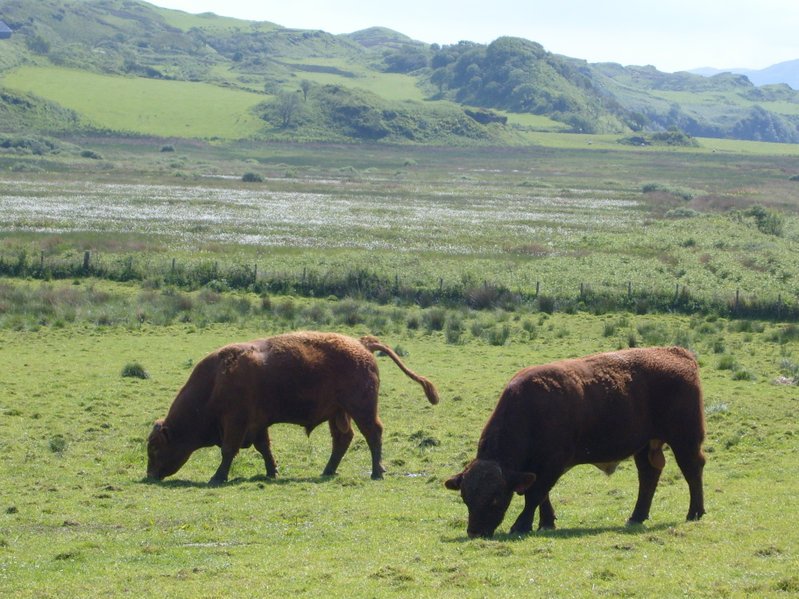
Scottish farmers are ready to meet climate targets but a delay in support to make the necessary changes is putting the industry at risk, a new report warns.
The WWF-commissioned report reveals that there is broad agreement between farmers and Scottish government on the actions required to slash emissions in the sector.
The campaign group found that by combining all the mitigations, such as improvements in animal health and the application of nitrogen fertilisers, direct agricultural emissions could be reduced by around 30% by 2032.
However, while farmers are ready to act to meet this climate target, the report, released on Monday (30 August), says urgent policy actions are needed to help them do it.
Climate change is already impacting the sector, with increasing extreme weather leading to more livestock losses and lower crop yields alongside unpredictable water availability, caused by either droughts or floods.
The report says the Scottish government’s own Climate Change Plan Update (CCPu) does not go far enough to help farmers adapt quickly to the risks posed by these impacts, or ensure that the required uptake is achieved.
A previous report by WWF Scotland said Scotland's farmers could 'comfortably' slash their emissions by 38% over the next 25 years.
It highlighted that the most important mitigation measures which could be made on a farm level required 'little or no land use change'.
But the new report's authors call on the Scottish government to provide the policy framework required for farmers to deliver the change required 'no later than 2022'.
They say the Agriculture Transformation Programme should be expanded to cover the additional capital, training and advice needed to transition to low carbon farming.
And the Scottish government should also think about introducing 'agri-climate' measures for farmers ahead of the 2023 agriculture legislation.
Jonnie Hall, director of policy at NFU Scotland, said the WWF's report 'vindicates' the union's calls for actions to help farmers and crofters deliver.
"The stark reality is that the legacy of continuing CAP schemes is just not up to it – in fact, current area-based support measures largely incentivise inertia.
“A new, properly funded, agricultural support package that delivers for Scotland’s current and future needs is the biggest priority of the union.
“The rhetoric of change must now be replaced by delivery – adequately funded, easily accessed measures that drive necessary actions."
Dr Sheila George, food and environment policy manager at WWF Scotland, said the 'longer the delay in delivery, the tougher the challenge for farmers would be'.
"If we miss the 2032 interim target as set out in the Climate Change Plan Update, the 2045 target may be out of reach," she warned.
“With COP26 a matter of months away, the Scottish government must show leadership by transforming rural policy and publishing a mitigation pathway for farmers.
"We know the actions required to reduce agricultural emissions and transition to climate-friendly farming, but we need to see action now or we risk missing Scotland’s climate change targets.”
It comes as the Scottish government unveiled the new Agriculture Reform Implementation Oversight Board (ARIOB), which will drive forward recommendations made by the Farmer-led Climate Change Groups (FLGs).
The five FLG groups published their recommendations for suckler beef, dairy, pigs, arable, hill farming, uplands and crofting in March.
They each set out a roadmap on how Scottish agriculture could deliver sustainable agricultural production.
NFU Scotland President Martin Kennedy will co-chair the ARIOB alongside Cabinet Secretary for Rural Affairs Mairi Gougeon.
